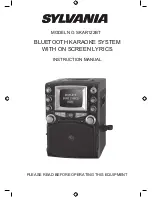
61
74-2760—1
b.
Locally Test Each Point of Protection
1)
Disarm the system by entering your passcode and place the
system in the test mode using your SYSTEM TEST Security mode.
2)
Open the doors or windows you want to test. The ON WATCH tone
should sound each time a protected point is opened and the point
description shows on the user keypad for 20 seconds. If the ON
WATCH tone does not sound, call for service.
3)
Test the interior protection points by walking through an interior
protected area with the system in the SYSTEM TEST mode. The
ON WATCH tone should sound each time an interior point is
tripped. If the ON WATCH tone does not sound, call Honeywell for
service.
Radio Frequency Transmitters
Your system may use state-of-the-art radio frequency transmitters. Each transmitter is
battery powered, self-checking and protected by a tamper-resistant switch on the
cover. Removing this cover activates a tamper switch that sends a signal to the control
panel. If that transmitter protected point is armed, the burglary alarm sounds. If that
point is ON WATCH, the ON WATCH tone sounds and the point name momentarily
displays on the user keypad display. If that point is not armed, it appears on the user
keypad display as an open point when you attempt to arm the system (see the
Programming Force Arm section).
NOTE:
Not all systems include RF Transmitters. If your system does, the following
information applies.
RF Transmitters are supervised using three methods:
1. Battery Supervision. The battery in each transmitter is checked periodically to
ensure it has sufficient voltage to send an alarm message. If the voltage level
reaches a predetermined level, a Transmitter Low Battery message is sent to
the system control panel, which relays the message to the user keypads. The
user keypad display shows the current mode, the transmitter point name, and
the message TX LOW BATTERY. If more than one transmitter battery is low, the
user keypad automatically scrolls through all transmitter messages. Replace the
batteries within one week of the occurrence of the low battery message. (See
Transmitter Battery Replacement instructions in the Ademco Transmitter
Instruction Manual).
2. Point Supervision. The transmitter at each protected point sends a regularly
scheduled signal to the control panel. If a transmitter fails to report, the user
keypad displays the current mode, the transmitter point name, and the message
TROUBLE TX. If more than one transmitter is in trouble, the user keypad scrolls
through all transmitter trouble messages. The TROUBLE TX message remains
on the display until you take corrective action (see the Troubleshooting section).
3. Door Open/Closed Supervision. Your control panel continuously monitors all
protected points, whether or not they are armed. Each time a protected point,
including RF points, is opened or closed, a signal is sent to the control panel
and its status is updated.
Summary of Contents for LYNX Touch 7000
Page 4: ...74 2760 1 4 ...
Page 10: ...74 2760 1 10 ...
Page 24: ...74 2760 1 24 ...
Page 38: ...74 2760 1 38 ...
Page 50: ...74 2760 1 50 ...
Page 58: ...74 2760 1 58 ...
Page 62: ...74 2760 1 62 ...
Page 68: ...74 2760 1 68 ...
Page 70: ...74 2760 1 70 ...
Page 76: ...74 2760 1 76 ...
Page 78: ...74 2760 1 78 ...
















































